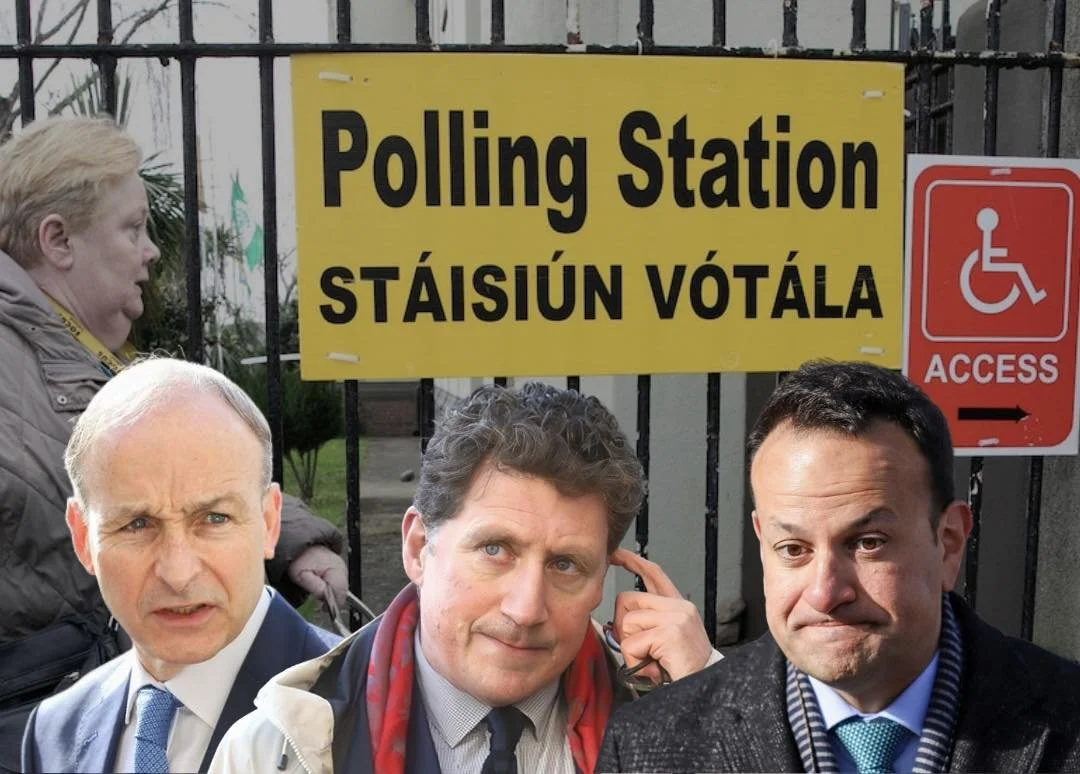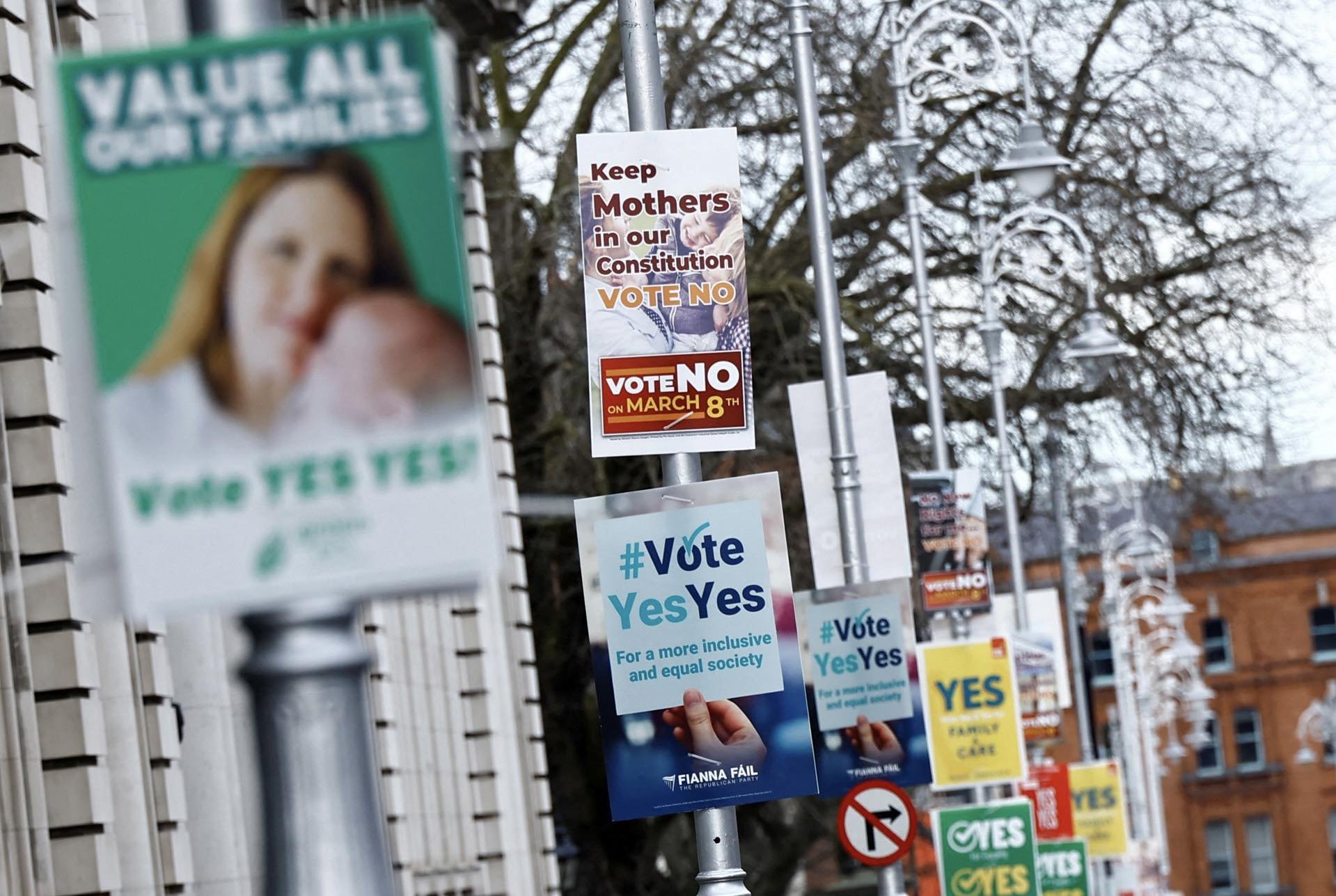Dublin Government Convincingly Beaten In Referendums, With Serious Questions Remaining For NGO's
The vast majority of the recent changes made to the constitution of the Twenty-Six County state, including Repeal the 8th, Marriage Equality, the Lisbon Treaty and the Nice Treaty, to name but a few, were necessitated by either a large social demand for constitutional change or to overcome legal barriers.
In the case of the Nice Treaty and Lisbon Treaty referendums, the amendments put forward proposed to further integrate the Twenty-Six County state into the European Union superstate. In more recent times, the Marriage Equality and Repeal the 8th referendums were held due to the pressure forced upon the state by widely supported grassroots social movements who had been advocating for this change for decades.
In contrast to these past referendums, and possibly the biggest failing of the Dublin government regarding the two most recent referendums, the so-called ‘Family Amendment’ and the ‘Carers Amendment’ (the 39th and 40th Amendment Bills respectively), is the fact that there was no demand whatsoever for these constitutional changes, in addition to there being no grassroots movement agitating for this change in the first place.
It was clear from the outset that the holding of these referendums was nothing more than a vanity project pursued by the parties of the ruling coalition government - the Green Party in particular. It can be assumed that the thinking of the Green Party in holding the referendums was to secure a desperately needed win in the run-up to June’s European and local elections, but more importantly before the upcoming General Election, scheduled to take place around this time next year.
Posters from those in favour of Yes, Yes and No, No.
Lulled into a sense of complacency, it seems as though the Dublin government thought it could simply recreate the results of the Marriage Equality and Repeal the 8th referendums by merely labelling something as progressive, garnering a wide strata of civil society and NGOs to support the campaign in doing so and violà, a nice feel-good victory secured for the ruling coalition in the run-up to the next election cycle.
But the Dublin government did not just misread the mood of the electorate, that would give them too much credit, on the contrary, the took the electorate for complete and utter idiots. This is something the population are used to, but the bigger scandal is that numerous NGO’s and so-called opposition parties did not engage with the wording of the new amendments in any meaningful way, declining to cast a critical eye over what they were being asked to support.
Instead, they glossed over the fact that the proposals of the Citizens Assembly were radically altered, and were seemingly happy to accept the ‘spirit’ of the coalition’s proposals, while not ideal, were broadly better than what was currently enshrined in the constitution. It can be assumed that these organisations felt the electorate would not critically analyse the wording of the proposed amendments in any meaningful way, and would instead be happy to simply accept the views of the political establishment.
‘When you’re explaining you’re losing’
The Family Amendment (39th Amendment Bill) was dogged from the outset by its wording. The days and weeks leading up to the 8th of March saw government ministers fumble over and over again by trying to explain what was meant by the term ‘Durable Relationship’, with the consensus from the Yes, Yes campaign being “It is up to the courts to decide”.
This was a bizarre state of affairs to say the least, with the electorate being asked to vote in favour of something, all in the hope that in months or years down the line the courts would decide what it actually meant.
The day before the referendum took place, The Ditch news website published advice from the Attorney General of the Twenty-Six Counties, Rossa Fanning, to Green Party TD and Minister for Children, Equality, Disability, Integration and Youth, Roderic O’Gorman.
This advice, which went unpublished for months, warned that there was uncertainty as to how the courts would interpret the meaning of a “durable relationship.” Fanning wrote on the 8th of December last year that:
“In the absence of clear guidance within the constitutional text or by way of legislation, it is difficult to predict with certainty how the Irish courts would interpret the concept of ‘other durable relationships. The courts may well address the question of what constitutes a ‘durable relationship’ on a case-by-case basis, having regard to the facts and circumstances of the particular case and the evidence before it.”
Fanning also told O’Gorman that there was legal uncertainty around the proposed ‘Carers Amendment’, stating that it remained unclear what, if any, obligation it would place on the state.
O’Gorman declared that the leak of this information, which was prevented from being published by the government, was “really frustrating'‘, with Fine Gael Senator Regina Doherty vowing to investigate the source of the leak.
Leo Varadakar, Taoiseach of the Twenty-Six Counties, casting his vote.
This aside, it would be naïve in the extreme to suggest that the far-right did not have any influence on the result of this referendum, and they will undoubtedly see the rejection of the amendment as an endorsement of their narratives. They were keen to tie it to immigration from the outset - a suggestion which was endorsed by Fine Gael Senator, Neale Richmond, on Prime Time.
However, a much greater influence on the final result came from conservative voices like those of Senator Michael McDowell, formerly of Fine Gael and the Progressive democrats, but now Independent, as well as Aontú TD Peadar Tóibín.
These voices continually focussed on the issue of succession rights being disputed by a potential durable relationship outside of a marriage, with the political establishment having no answer to this challenge other than “It is up to the courts to decide”.
Regardless if those voting considered themselves aa progressive or reactionary, far-right, far-left or bang in the centre, the plain truth of the matter is that the wording of this particular amendment simply did not make sense to people.
It would be wrong to read the rejection of this amendment as a rejection of single parent or non-traditional families, it was more a rejection of being treated like a fool by the political establishment.
The second amendment, the so-called “Carers Amendment” (40th Amendment Bill), was a more straightforward affair.
Undoubtedly, the wording of the current and now retained article is somewhat archaic, which could have been updated to easily accommodate gender neutral terminology to allow for the realities of modern childcare, instead the Dublin government’s proposal destroyed the whole spirit of the article.
The political establishment sought to remove a protection, aspirational in nature, that carers should not be forced to choose the labour market over childcare. To remove such a protection, despite its archaic language, while replacing it with a neo-liberal word salad, was indicative of the thinking behind the proposed amendment.
This was confirmed later on when Leo Varadkar, Taoiseach of the Twenty-Six Counties, made a disastrous appearance on the Six O’Clock Show stating that “I don’t actually think that’s the State’s responsibility, to be honest. I do think that is very much a family responsibility, but families deserve the support of the State, and that’s really what this article will say, this new part of the Constitution.”
That the vast majority of voters saw right through the reactionary nature of the proposed amendment was in no way surprising. However, it was extremely worrying to see whole swathes of NGOs row in behind the Dublin government’s proposal - some critical, some completely uncritical.
This particular episode belies a dangerous belief by some that progressive change in society comes not from below in grassroots movements organising and demanding change on the streets, but that change happens via liberal consensus in boardrooms, offices and Leinster House committee rooms. This is a very dangerous assumption.
It must be said that the interjection of some advocacy groups, particularly FLAC (Free Legal Advice Centres) and the disability group Equality not Care was commendable. These interjections clearly hurt the ‘yes’ campaign, as they could not be dismissed as being positioned on the ‘far-right’ or as ‘misinformation’ by the political establishment.
The key lesson now must be that progressive systemic change can never come from the political establishment, it will always come from below. While there is still a colossal amount of work to be done in building a fairer, more equal society, people are not going to be hoodwinked into voting for reactionary legislation simply because they are told it is progressive by the political establishment.



